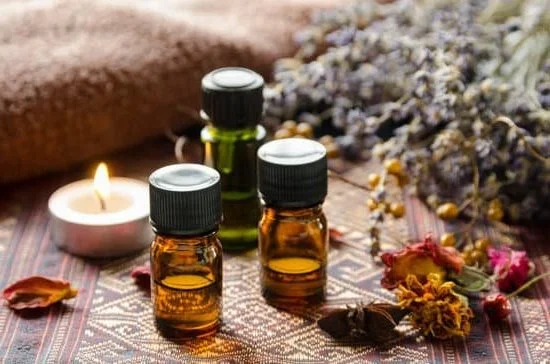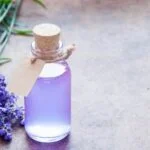Can I use a medical nebulizer used for aromatherapy? This question has been a topic of interest and discussion among individuals looking to explore alternative methods for practicing aromatherapy. In this blog post, we will delve into the concept of using medical nebulizers for aromatherapy and address its potential benefits and drawbacks. Understanding the purpose of this post is essential in providing clarity for those seeking information on this topic.
It’s important to first have a clear understanding of what medical nebulizers are and how they function. These devices are traditionally used in the medical field to administer medication in the form of a fine mist that can be inhaled into the lungs. However, some individuals have begun to explore their potential use for aromatherapy purposes, prompting the need for further exploration and discussion on this topic.
Aromatherapy itself is known for its numerous benefits, including relaxation, stress relief, and overall wellness. The practice often involves using essential oils to create a soothing and therapeutic environment. Given these benefits, it is understandable why individuals may wonder if medical nebulizers can be utilized as an alternative method for delivering aromatherapy. Throughout this article, we will weigh the advantages and disadvantages of repurposing medical nebulizers for aromatherapy and provide insights into safety considerations and precautionary measures.
Understanding Medical Nebulizers
Medical nebulizers are devices that are commonly used to deliver medication directly to the lungs in the form of a mist or vapor. They work by converting liquid medicine into a fine mist that can be inhaled into the lungs. This method is often used to treat respiratory conditions such as asthma, chronic obstructive pulmonary disease (COPD), and cystic fibrosis. The use of medical nebulizers allows for the medication to reach the lungs quickly and effectively.
These devices typically consist of a base unit, a mask or mouthpiece, and tubing. The liquid medication is placed into the nebulizer cup, which is attached to the base unit. When turned on, the base unit converts the liquid into a mist that can then be inhaled through the mask or mouthpiece. Medical professionals often prescribe specific medications to be used with nebulizers, and they play a vital role in helping individuals manage respiratory conditions.
In traditional medical settings, medical nebulizers are strictly used for delivering prescribed medications to treat respiratory conditions. However, some individuals have questioned whether these devices can be repurposed for other uses, such as aromatherapy. So, can I use a medical nebulizer for aromatherapy? Let’s delve into this question further and explore the potential benefits and risks associated with using medical nebulizers for aromatherapy.
- Base unit
- Mask or mouthpiece
- Tubing
- Nebulizer cup
- Liquid medication
- Prescribed medications for respiratory conditions
- Rapid and effective delivery of medication
- Commonly used for asthma, COPD, and cystic fibrosis
Aromatherapy and Its Benefits
It is important to understand the concept of aromatherapy and its benefits before considering the use of medical nebulizers for this purpose. Aromatherapy is a holistic healing treatment that uses natural plant extracts, known as essential oils, to promote physical and mental well-being.
These essential oils can be inhaled, applied topically, or used in various other ways to achieve therapeutic effects. Aromatherapy has been used for centuries as a form of alternative medicine, offering a wide range of potential benefits for both physical and emotional health.
One of the primary benefits of aromatherapy is its ability to promote relaxation and stress relief. Inhaling certain essential oils can have a calming effect on the mind and body, helping to reduce feelings of anxiety and tension.
Additionally, some essential oils are known for their uplifting properties, which can help improve mood and overall emotional well-being. Aromatherapy also has potential benefits for physical health, as certain essential oils have anti-inflammatory, antibacterial, and analgesic properties that can support the body’s natural healing processes.
Aromatherapy is commonly used in various settings to promote relaxation, enhance mood, improve sleep quality, and alleviate symptoms associated with certain health conditions. It is often integrated into massage therapy sessions, yoga classes, meditation practices, and spa treatments as a way to enhance the overall experience and provide additional therapeutic benefits.
The practice of using essential oils for aromatherapy continues to gain popularity as people seek natural solutions for managing stress and supporting their overall wellness journey. With an understanding of the benefits of aromatherapy in mind, it then becomes important to consider whether medical nebulizers can be effectively used for this purpose while still maintaining safety and efficacy.
Can Medical Nebulizers Be Used for Aromatherapy?
Medical nebulizers are commonly used in the medical field to deliver medication directly into the lungs, making them an effective tool for managing respiratory conditions such as asthma, COPD, and cystic fibrosis. However, there has been a growing interest in whether medical nebulizers can be repurposed for aromatherapy.
Aromatherapy is a holistic healing treatment that uses natural plant extracts to promote health and well-being. The use of essential oils in aromatherapy has been known to have various benefits, including stress relief, relaxation, and improved sleep quality.
One question that often arises is whether a medical nebulizer can be used for aromatherapy purposes. The answer is yes, in some cases. Some individuals have experimented with using medical nebulizers to inhale essential oils as a way to experience the benefits of aromatherapy. This method allows for the direct inhalation of essential oils into the lungs, which can have a more immediate effect compared to other methods of aromatherapy such as topical application or diffusion.
It is important to note, however, that while medical nebulizers can be used for aromatherapy purposes, there are potential advantages and disadvantages to consider before doing so. It is crucial to understand the proper usage and potential risks associated with utilizing a medical device for non-medical purposes such as aromatherapy.
Additionally, caution should be taken when using essential oils with a medical nebulizer due to the potential impact on its functionality and cleanliness. As with any alternative use of a medical device, it is recommended to consult with a healthcare professional before incorporating a medical nebulizer into an aromatherapy practice.
Advantages and Disadvantages
Medical nebulizers have been traditionally used for delivering medication directly to the lungs in the form of a mist, and they work by converting liquid medicine into a breathable vapor. However, individuals have begun to explore alternative uses for medical nebulizers, such as aromatherapy.
In doing so, they aim to take advantage of the potential benefits associated with inhaling essential oils through a nebulizer. But before making this shift in practice, it is important to consider both the advantages and disadvantages of using medical nebulizers for aromatherapy.
One of the main advantages of using a medical nebulizer for aromatherapy is its ability to deliver essential oils in a fine mist that can be easily inhaled and absorbed by the body. This method offers a more direct and efficient way of experiencing the therapeutic effects of essential oils compared to other forms of aromatherapy. Additionally, medical nebulizers often come with adjustable settings that allow users to control the intensity and duration of the mist, providing a customized experience.
On the other hand, there are potential disadvantages and health risks to consider when using medical nebulizers for aromatherapy. One concern is that certain essential oils can be harmful if inhaled in large quantities or if not properly diluted. Furthermore, improper cleaning and maintenance of the nebulizer could lead to contamination or cross-contamination between different essential oils, posing a risk to respiratory health.
These points demonstrate that while using medical nebulizers for aromatherapy presents unique advantages, it also comes with potential drawbacks and risks that should not be overlooked.
| Advantages | Disadvantages |
|---|---|
| Delivers essential oils efficiently | Potential health risks from improper use |
| Customizable mist intensity | Risk of contamination if not properly cleaned |
Safety and Precautions
When considering using a medical nebulizer for aromatherapy, it is essential to take important safety considerations and precautions into account. While the use of medical nebulizers for traditional medical purposes is well-established, repurposing them for aromatherapy requires some additional considerations to ensure safe and effective use.
Quality of Essential Oils
One crucial factor to consider when using a medical nebulizer for aromatherapy is the quality of essential oils being used. It is important to use high-quality, pure essential oils that are specifically meant for aromatherapy. Substandard or adulterated oils can pose health risks when inhaled, especially through a nebulizer, as the oil particles are dispersed in a fine mist that can be easily inhaled into the lungs.
Dilution and Dosage
Another important aspect to consider is the dilution and dosage of essential oils when using a medical nebulizer for aromatherapy. Unlike traditional diffusers where essential oils are typically diluted with water, nebulizers disperse undiluted essential oil particles, which can i use a medical nebulizers used for aromatherapylead to overexposure if not used properly. It is crucial to follow recommended guidelines for dilution and dosage provided by reputable sources or professionals in the field of aromatherapy.
Cleaning and Maintenance
Proper cleaning and maintenance of the medical nebulizer is also paramount when using it for aromatherapy. Residual oil particles left in the nebulizer can degrade its functionality over time and may lead to cross-contamination if different essential oils are used without thorough cleaning in between uses. Regularly cleaning and maintaining the nebulizer according to manufacturer’s instructions will help ensure its longevity and prevent potential health hazards associated with improper usage.
Alternative Aromatherapy Methods
When it comes to practicing aromatherapy, there are various alternative methods that can be used besides medical nebulizers. One popular and convenient option is the use of diffusers, which work by dispersing essential oils into the air in a room, creating a pleasant and aromatic environment. There are different types of diffusers available, including ultrasonic diffusers, nebulizing diffusers, heat diffusers, and evaporative diffusers. Each type has its own unique way of diffusing essential oils and may appeal to different preferences.
Another alternative method for aromatherapy is the use of essential oil inhalers. These portable devices allow individuals to inhale essential oils directly through their nose, providing a quick and easy way to experience the benefits of aromatherapy on-the-go. Essential oil inhalers are small and discreet, making them convenient for use in various settings such as at work, while traveling, or in public spaces.
In addition to diffusers and essential oil inhalers, topical applications of essential oils can also be an effective method for practicing aromatherapy. This may include diluting essential oils with a carrier oil and applying them to the skin through massage or topical application. This method allows for direct absorption of the essential oils into the body and can be beneficial for targeted relief or overall wellness support.
Overall, while medical nebulizers have traditional medical uses, there are several alternative methods that individuals can explore for practicing aromatherapy. Each method offers its own advantages and considerations, allowing individuals to find the most suitable approach based on their preferences and needs. Utilizing these alternative methods can provide a safe and effective way to incorporate aromatherapy into daily wellness routines without repurposing medical nebulizers for this purpose.
Conclusion
Using a medical nebulizer for aromatherapy has been a topic of interest and debate among individuals seeking alternative methods for relaxation, stress relief, and overall wellness. While traditional medical nebulizers are designed for delivering medication in the form of a fine mist to the lungs, some individuals have explored repurposing these devices for the diffusion of essential oils commonly used in aromatherapy.
In this blog post, we have aimed to provide an in-depth exploration of this topic to address the question: Can medical nebulizers be used for aromatherapy?
In understanding the potential use of medical nebulizers for aromatherapy, it is crucial to consider both the advantages and disadvantages associated with repurposing these devices. Advantages can include more effective delivery of essential oils into the respiratory system and potentially enhanced benefits, while disadvantages may involve risks associated with inhaling essential oils directly into the lungs and potential damage to the nebulizer if not cleaned properly after each use.
When considering using a medical nebulizer for aromatherapy, it is important to prioritize safety and take necessary precautions. Ensuring that the device is thoroughly cleaned and only using appropriate essential oils recommended by healthcare professionals can help minimize potential health risks. Additionally, seeking advice from a qualified aromatherapist or healthcare provider before using a medical nebulizer for aromatherapy is highly advisable.
Ultimately, while some individuals may choose to explore using a medical nebulizer for aromatherapy, there are alternative methods available that are specifically designed for this purpose. Diffusers, essential oil inhalers, and topical applications can provide safe and effective alternatives to achieve the desired benefits of aromatherapy without repurposing medical equipment not intended for such use.
Tips for Using Medical Nebulizers for Aromatherapy
In conclusion, while it is technically possible to use a medical nebulizer for aromatherapy, it is essential to proceed with caution and thorough understanding of the potential risks and benefits. Medical nebulizers are designed for specific medical purposes such as delivering medication directly to the lungs, and using them for aromatherapy may pose health risks if not done properly. It is important to consult with a healthcare professional or aromatherapy expert before repurposing a medical nebulizer for aromatherapy.
When considering using a medical nebulizer for aromatherapy, it is crucial to weigh the advantages and disadvantages. While using a nebulizer can provide more consistent and controlled delivery of essential oils compared to other methods, there are potential drawbacks such as the risk of breathing in too much oil at once or improper cleaning leading to bacterial growth. Safety precautions should be taken seriously, including proper cleaning and sterilization of the nebulizer equipment to prevent any potential health hazards.
Ultimately, individuals interested in reusing a medical nebulizer for aromatherapy should also consider alternative methods for practicing aromatherapy. Diffusers, essential oil inhalers, and topical applications are popular and effective alternatives that can achieve similar therapeutic benefits without repurposing medical equipment. With careful consideration of all factors involved, individuals can make an informed decision on whether using a medical nebulizer for aromatherapy is appropriate for their needs and preferences.
Frequently Asked Questions
What Is a Nebulizer Aromatherapy?
A nebulizer aromatherapy is a method of using essential oils for aromatherapeutic purposes by dispersing them into the air as a fine mist. This allows the aroma and therapeutic properties of the oils to be inhaled easily.
Are Nebulizing Diffusers Safe?
Nebulizing diffusers are generally safe to use, but it’s important to follow the manufacturer’s instructions and use high-quality essential oils. Some people may be sensitive to certain oils, so it’s best to use caution when using a nebulizing diffuser, especially around children and pets.
Can You Use Essential Oils in a Medical Nebulizer?
Using essential oils in a medical nebulizer is not recommended unless specifically approved by a healthcare professional. Medical nebulizers are designed for inhaling medication in the form of a mist or aerosol, and using essential oils in these devices could damage them or interfere with their function.
It’s always best to consult with a healthcare provider before using essential oils in any medical device.

Are you looking for a natural way to improve your health and wellbeing?
If so, aromatherapy may be the answer for you.





